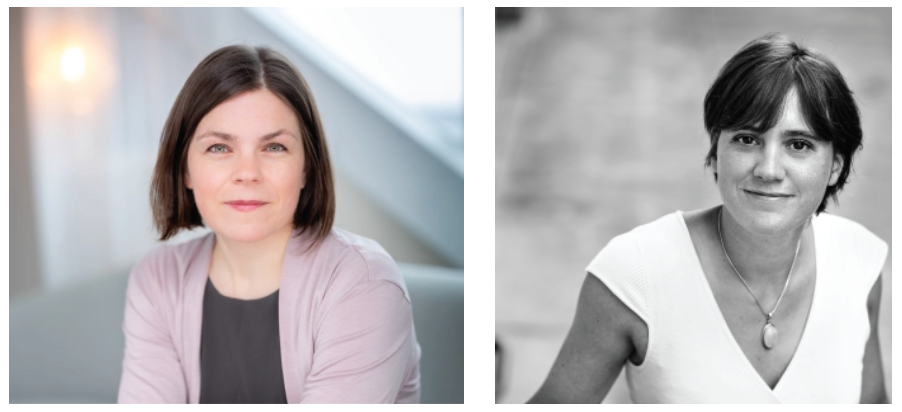AGU has awarded journalists Julia Rosen and Nicola Jones for their reporting on the Earth and space sciences.
13 September 2023

AGU press contact:
Rebecca Dzombak, [email protected], +1 (202) 777-7492 (UTC-4 hours)
WASHINGTON — AGU has awarded journalists Julia Rosen and Nicola Jones for their reporting on the Earth and space sciences.
Julia Rosen, a freelance journalist, is honored with the 2023 Walter Sullivan Award for Excellence in Science Writing – Features for her feature story in Hakai Magazine documenting how ocean deoxygenation is diminishing crab populations in the Pacific Northwest, imperiling crabbers’ livelihoods. Nicola Jones, a freelance journalist, is honored with the 2023 David Perlman Award for Excellence in Science Writing – News for her Nature news story raising the alarm that fossil fuel emissions could hamper carbon dating.
These two AGU journalism awards will be formally presented during AGU’s annual Honors Ceremony during #AGU23. Nominations for next year’s journalism awards will open on 17 January, 2024.
Walter Sullivan Award for Excellence in Science Writing – Features
AGU recognizes Julia Rosen for “Catching Crabs in a Suffocating Sea,” published in Hakai Magazine on 1 March 2022. The Walter Sullivan Award, named for the late New York Times science writer, honors excellence in science feature reporting for work prepared with a deadline of more than one week. The award comes with a $5,000 prize and an award.
Rosen’s article focuses on crabbers in the Pacific Northwest whose livelihood is under threat because of the impact of oceanic deoxygenation on healthy crab populations. It highlights an important but often overlooked aspect of climate change: As the oceans warm, they hold less oxygen, which has far-reaching consequences for marine life. The judges were highly impressed by Rosen’s eloquent writing and careful research, as well as her ability to communicate the complexities of hypoxia and its ecological and societal impacts. They also noted that she provided readers with some hope by highlighting the potential benefits of oxygen sensors, which may help crabbers adjust to changing oceanic conditions.
“Rosen’s article effectively communicates the science behind the impacts of hypoxia on marine life and highlights a potential new scientific tool that may help affected communities,” one judge wrote. Another commended the piece as “well-crafted, beautifully written,” and noted that it “connects local to global and shows why everyone, even on different continents, should care about the problem — it will reach us all at some point.”
David Perlman Award for Excellence in Science Writing – News
AGU recognizes Nicola Jones for “Carbon dating hampered by rising fossil-fuel emissions,” published in Nature on 27 June 2022. The David Perlman Award, named for the late San Francisco Chronicle science editor, recognizes excellence in science news reporting published with deadline pressure of one week or less. The award comes with a $5,000 prize and an award.
Jones has been fascinated with isotopes since her university days, when her thesis supervisor used isotope data to help assess the contribution of methane clathrates to rapid climate change in the past and their possible contributions to the future.
Around 2020, Jones started to come across hints that the “bomb carbon” signal, which is used for carbon dating, was due to disappear. She got in touch with a key researcher who tipped her off when the news was about to come out in a brief correspondence in Nature. Nicola pitched and wrote a freelance news story in Nature to expand on the importance and interest of this landmark event. It was completed in three days and was the first article, as far as she knows, to report on this development.
Jones expertly reports on the challenges that rising carbon dioxide levels in the atmosphere present for accurately dating artifacts and remains. The implications of the end of the bomb carbon cycle reach far and wide, from archaeology to food and art forensic investigations. She takes a topic, carbon dating, that might be considered dry and elevates it in ways that will interest those in both the general public and the sciences, one of the judges noted. Her engaging writing and precise reporting explain the isotope science and draw attention to this significant but underreported issue and serve as a timely reminder of the links between human activities, atmospheric changes and their far-reaching effects on the many fields under the AGU umbrella. One judge remarked, “It was a fascinating story and one that will stick with me for a while. I want to know more!”
###
AGU (www.agu.org/) is a global community supporting more than half a million advocates and professionals in Earth and space sciences. Through broad and inclusive partnerships, AGU aims to advance discovery and solution science that accelerate knowledge and create solutions that are ethical, unbiased and respectful of communities and their values. Our programs include serving as a scholarly publisher, convening virtual and in-person events and providing career support. We live our values in everything we do, such as our net zero energy renovated building in Washington, D.C. and our Ethics and Equity Center, which fosters a diverse and inclusive geoscience community to ensure responsible conduct.